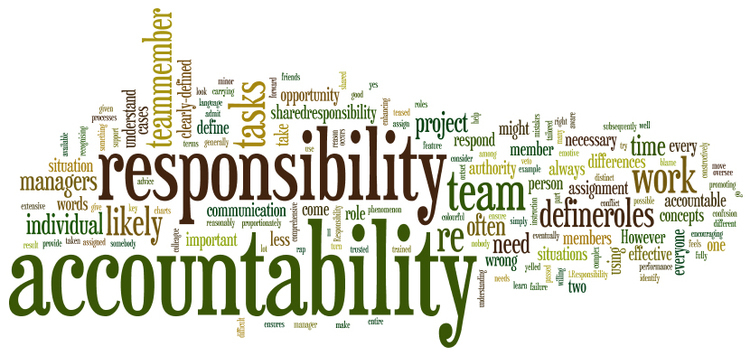
The Sunday Mail

COUNTLESS corporate scandals indicate a serious deficit of good corporate governance. Often times managers who are entrusted with fiduciary duties are the ones responsible for running down companies. It is worrying that many managers seem to be neither accountable nor responsible.
Yet responsibility and accountability are the essence of good corporate governance.
Governance is not bound by any laws: it is simply best practise. Responsibility, on the other hand, is usually attached to directors and managers.
Directors control the company on behalf of shareholders, who are often the owners of the company.
It is precisely for this reason that directors, while safeguarding the interests of shareholders, are often assigned the responsibility to formulate strategies and policies that are supposed to be implemented by management.
Also, it is precisely for this reason that directors and management have to be accountable for the direction that the company takes.
So, the performance of managers has to be measured against the target that they set for themselves.
If, for example, management promises that it will meet revenue targets of, say, US$100 000 per month, this means that they should be accountable in the event that the set target is not met.
Equally, they should be rewarded if they manage to exceed expectations; it is a two way street.
It not uncommon for most local companies to routinely set for themselves targets that they are not able to meet.
The practice of accepting incompetence as part and parcel of business is slowly evolving as an acceptable culture in business, and this is wrong.
What is even more alarming is that managers are also developing the habit of not accepting responsibility when things go wrong.
It is high time business gets back to the basics. People need to be made to account for their actions.
Where they fail to fulfil the expectations and targets set by shareholders they have to provide compelling reasons why they should not be relieved of their duties.
However, there are no laws which force people to be responsible and accountable but simply best practise.
It is worth noting that good ethics are required to ensure best practice. Those entrusted with big responsibilities in business and Government really have to be ethical.
Dishonesty and lack of integrity has the adverse effect of affecting the performance of local companies and, by extension, the performance of the economy.
Those who make wrong decisions, particularly at a time when the country desperately needs to turnaround its fortunes, should be considered to be liabilities.
Playing the blame game is also not helpful either.
There are cases where management might fail to achieve their goals simply because they acted on wrong information from subordinates.
In such cases, while management can be held to be solely accountable, it might be an indication that the whole structure on which the organisation or business depends needs to be reviewed.
An alert management always looks out for this.
In a normal company setup, the employees should be accountable to the management, while the management should be accountable to the directors.
In turn, the directors have to serve the interests of shareholders and other stokeholders.
For us to be able to review our local systems there is need to accept the fact that we still have a long way to go when it comes to practising good corporate governance.
And this is often a put off for investors.
It is unquestionable that good corporate governance serves to grow investor appetite.
Corporate governance systems cannot be cheated. It doesnot help to pay lip service to the practice, for the consequences can be dire.
History is littered with countless local companies that went bust for serious breaches to codes of corporate governance.
Good business leaders are good listeners; they pay attention to every query raised by stakeholders.
Input from stakeholders can either be negative or positive but an accountable leader is available to listen to the concerns of his or her management and employees.
Corruption is seemingly a crystallisation of all that has gone wrong in the economy.
As argued earlier, there is crucial need to get back to the basics: To be fair, reliable and accountable.
There is a direct correlation between high levels of corruption and declining FDI.
The onus is on us to improve our lot.
We can start by being accountable for our actions and being reliable in everything that we do.
◆ Taurai Changwa has vast experience in tax, accounting, audit and corporate governance issues. He is MD of SAFIC Consultancy and writes in his personal capacity. Feedback: [email protected], Facebook page SAFIC Consultancy and WhatsApp +263772374784



